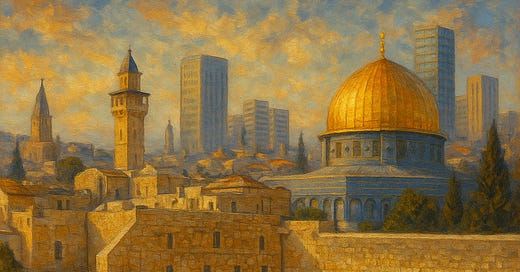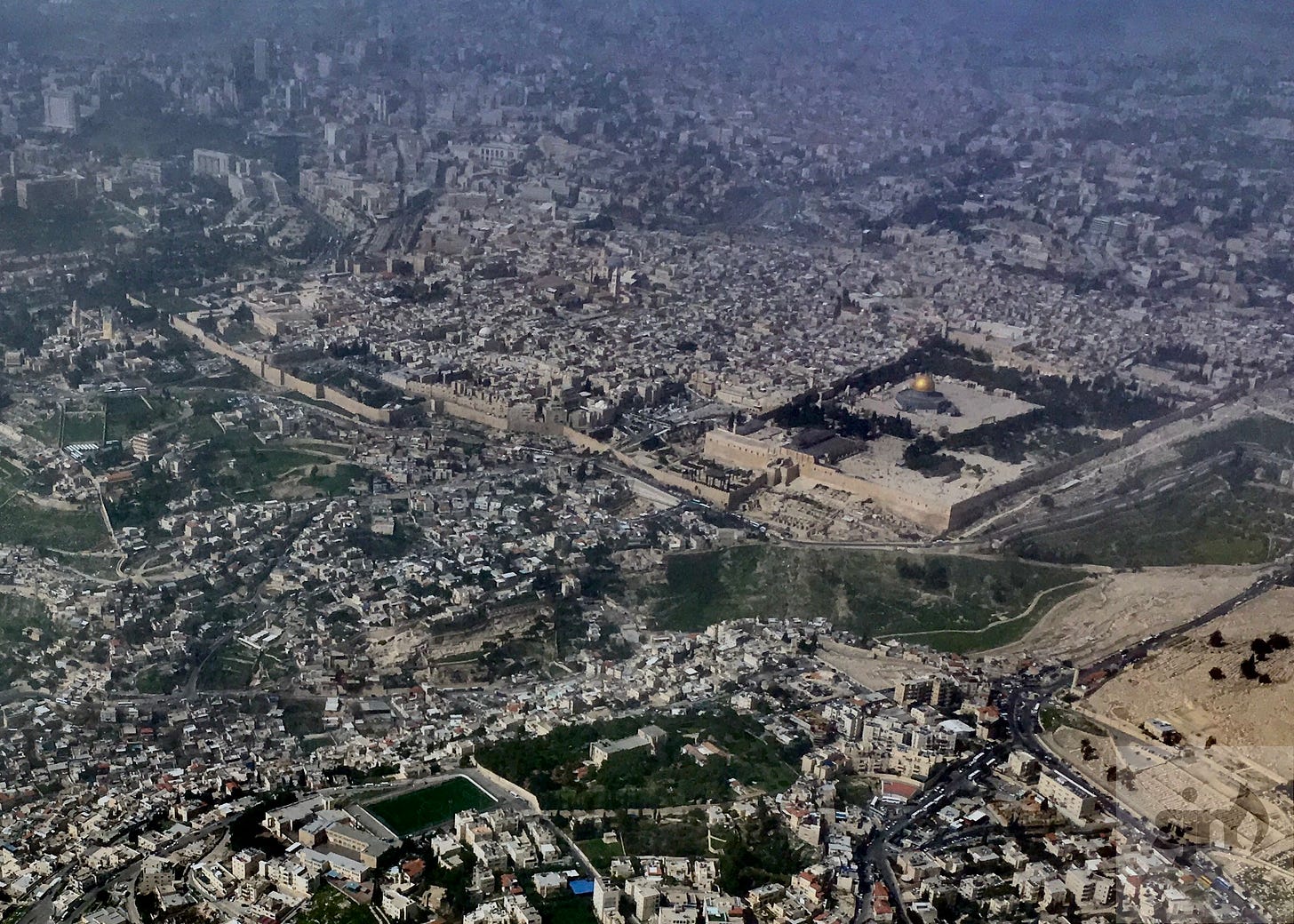Fifty-eight years ago today, the Jewish people witnessed a miracle. After 1,897 years of longing, exile, and broken dreams, the ancient city of Jerusalem—the holiest place on earth—returned to Jewish sovereignty. Not just any city. Not just any capital. But Jerusalem: the beating heart of our history, our prayers, our tears, our hope. The city that never left us, even when we were torn from her stones.
For nearly two millennia, the Western Wall stood like a scar in time—wounded, watched, and wept over. A relic of what was lost. When the Romans destroyed the Second Temple in 70 CE, they didn’t just raze a building—they shattered a people’s sovereignty. And yet, somehow, that sovereignty was not destroyed. It was only sleeping.
In June 1967, it awakened.
As Israeli paratroopers made their way through the alleys of the Old City, and Mordechai "Motta" Gur’s words echoed through the radios—“Har HaBayit b’yadeinu,” “The Temple Mount is in our hands”—the Jewish people stood stunned by the realization: we were no longer visitors to our past. We had become the guardians of our future. The impossible had happened, before the eyes of the world.
Much of my youth was spent unconvinced. The notion of God, of purpose, of miracles—it felt abstract. Foreign. But my personal connection to Jerusalem runs deep. I have lived there, worked there, and studied Torah and Jewish history there. I have walked its ancient alleyways and its modern thoroughfares. I have experienced the full cycle of Jewish life there—from the awe of Yom Kippur with its streets empty of cars, to the joyful chaos of Purim in the Mahaneh Yehudah Market, to the jubilation of Yom HaAtzmaut. And yes, I have also witnessed the desecration of our Holy City by zealots who defile the sacredness of Yom Yerushalayim. My love for this city is not theoretical—it is etched into my soul, into the rhythm of my life.
When I first read Six Days of War by Ambassador Michael Oren—somewhere between my first and second times living in Jerusalem—I felt like I was hit by lightning. It broke through my lingering agnosticism and forced me to reckon with what I had already begun to feel in my bones: this wasn’t just strategy or luck or timing. This was Hashgacha Pratit—Divine Providence—woven through every minute, every maneuver, every breath.
Because how else do you explain the return to Jerusalem after 1,897 years? How else do you explain surviving war on three fronts against enemies that promised annihilation—and emerging not just alive, but reborn?
Yom Yerushalayim is not about flags or parades. I denounce the extremists who march through the streets of the Old City to provoke, not to pray. They have hijacked the holiness of this day. This day is not about them. It is about us—all of us. All Jews. All lovers of peace. All seekers of justice.
Yom Yerushalayim falls each year on the 28th of Iyar, nestled between Yom HaAtzmaut and Shavuot—between national rebirth and Divine revelation. It reminds us that the physical and the spiritual are not meant to live apart. As the Talmud teaches, “The Holy One, Blessed be He, declared: I will not enter the heavenly Jerusalem until I can dwell in the earthly Jerusalem” (Ta’anit 5a). The return of Jewish sovereignty to Jerusalem is not only the revival of our political agency, but a necessary step in the unfolding of a sacred future.
This moment was not only historic—it was prophetic. As the Psalmist writes, “For the LORD has chosen Zion; He has desired it for His seat. ‘This is my resting-place for all time; here I will dwell, for I desire it.’” (Psalm 132). Jerusalem is not just the city we love—it is the city God chose. Our return was not merely political. It was spiritual. It was the fulfillment of Divine intention.
This day is about the hand of history moving in a way that defies logic. It is about the Jewish people coming home—not with vengeance, but with vision. Not to dominate, but to dwell. To walk again where our ancestors walked. To cry again where our prophets cried. To pray again where our prayers always pointed.
Jerusalem is not just a place. It is a promise. And on Yom Yerushalayim, we remember that the promise was kept. For all those who long for peace and pray for a Jerusalem rebuilt in justice and compassion—this day is a beacon of what is possible.





